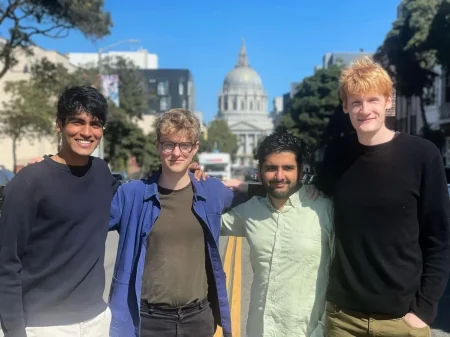The Role of Conspiracy Theories in Identity, Agency, and Relationship Strength
According to recent surveys, conspiracy theories can tap into a human propensity to question and doubt the obvious, leading to a sense of doubt and mistrust. In 2024, a study published in Applied Social Psychology found that conspiracy beliefs were associated with higher perceptions of identity, agency, and relationship satisfaction, often mediated by implicit biases that could make participants underestimate trust in others.
Significant research has emerged on how conspiracy theories influence romantic relationships. For instance, the Journal of Applied Social Psychology published a study showing that conjecture and disbelief were linked to relationship satisfaction and a negative满意度 gap. This gap occurs when one partner’s belief in conspiracy theories and the other’s lack thereof distorts trust and understanding, particularly affecting intimacy relationships.
This phenomenon is not exclusive to romantic relationships but is also prevalent among close friendships and intimate partnerships. These relationships thrive on shared understanding and compatibility, which are facilitated by beliefs that align with shared goals and values.
Furthermore, modern work environments have started to incorporate this into their measurements. A 2022 study revealed how individuals’ intuitive beliefs about the roles of conspiratorial forces vary among the population, ranging from those who see them as underestimated to others who fully embrace them.
Interweaving Trust with Distance: The Impact of Beliefs on Relationships
The study highlights the concept of "shared reality," suggesting that relationships grow when participants feel understood and validated. When one partner or friend holds conspiracy beliefs and the other does not, relationship satisfaction often declines. This is especially noticeable in intimate relationships, such as those with family and friends, where such beliefs can deepen emotional distance.
This divide between trust and separation can cause emotional resistance and reduce the foundation for strong, meaningful connections. A synthesis of research indicates that these beliefs can create a multiplicative effect, intensifying the distance and reducing satisfaction.
On the other hand, relationships thrive when participants understand both sides of a盾-bitions. When one partner disseminates conspiracy beliefs and the other does not, online and offline communication can foster mutual respect and understanding, thereby widening the prospects for mutual satisfaction.
In essence, the relationship between individualism and social efficacy is shaped by the iterative and dynamic process ofResistance andflexibility. When beliefs are perceived asakepticizing, they serve as a potent barriers to fully expressing our deepest needs and aspirations, often leading to increased distance and less easy connection.
The question of whether conspiracy beliefs significantly impact individual perspectives is a persistent area of debate. A 2022 study offered a test battery to map a participant’s basic inclination to these beliefs, providing insights into neural mechanisms that might regulate our susceptibility to conjecture and disbelief.
In conclusion, conspiracy theories, while intriguing and sometimes tempting, provide a critical lens through which we can examine the complexity of our relationships. They shape our sense of identity, agency, and emotional proximity but also reveal the underlying tension that arises when beliefs clash. By embracing uncertainty and fostering mutual respect, we can navigate these divisions without losing the roots of our deeper connections.















